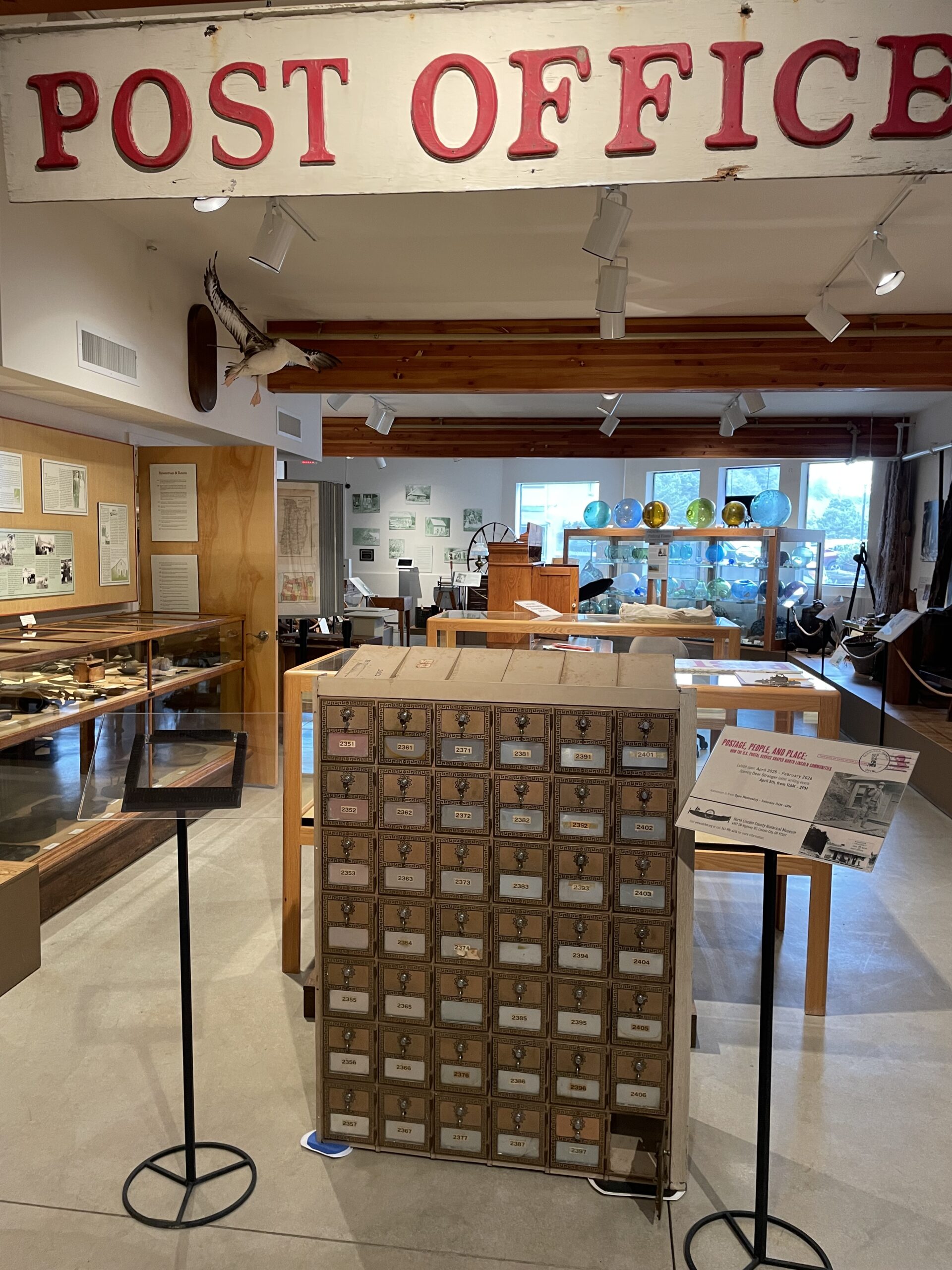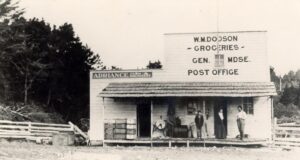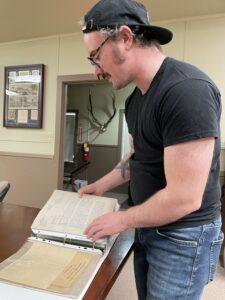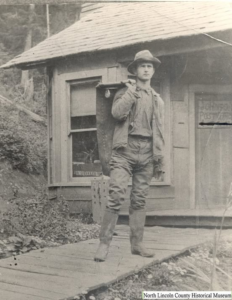
By LORI TOBIAS/Oregon ArtsWatch
LINCOLN CITY — The letters came from as far as China and as near as a five-minute-drive away, arriving at post offices often established before their towns had names.
The new and 10-month-long Postage, People, and Place exhibit at the North Lincoln County Historical Museum, shares the story of how the U.S. Postal Service shaped the place now known as Lincoln City. Until 1965, the popular tourist destination was not one city, but a handful of communities that live on today only as place names from pioneer days.
“A couple of the towns, like Oceanlake and Taft, didn’t even have names until they had to pick one for their post office,” said museum director Christopher Melton. “John Bones, who started the Taft Post Office, originally filed under the name Siletz Bay, but since there was already a town named Siletz, he decided to name the town Taft because he liked William Howard Taft.
“When they were filing to open a post office in Oceanlake, they couldn’t figure out a name. Then, the wife of one of the founders said it lies between the ocean and the lake, let’s call it Oceanlake.”

Lincoln County’s first post office was established in 1896 in Kernville. In 1908, the Rose Lodge Post Office opened and was the first managed by a woman. Julia Dodson was one of the 10 percent of women postmasters nationwide. “It was called Rose Lodge because of all her roses,” Melton said. “She grew so many roses some people still have plants that descended from her roses.”
Melton was inspired to create the exhibit in part by the mystery novel Curiosity Didn’t Kill the Cat, by Oregon author M.K. Wren. Set in Lincoln City, the tale features numerous details about the community of Nelscott.
“One of the things she wrote about was how every day there was a parade of all the people coming into town from their houses to pick up their mail and socialize and gossip,” he said. “That was the place where everyone caught up and talked to each other. So, it was this wonderful little piece of history.”
Possible changes lead to exhibit

Recent talk by the Trump administration of dismantling the U.S. Postal Service as we know it nudged Melton to share the museum’s vast postal-related collection now. Donated over the years, largely by Lincoln City pioneer families, the collection includes postal scales, a mail carrier’s bag, the original DeLake postmaster’s desk, circa 1910, and innumerable letters, postcards, and Victory or V-mail — letters printed on a particular type of stationery, photographed, mailed overseas, printed out, and delivered.
One of the more substantial collections is the personal letters of Miss Wave Lesley, who worked at the Canton Christian College as a mathematics instructor. The binder of correspondence includes an invitation from the American Community to attend a Washington’s Birthday Ball at the Canton Club Theatre and a packet of marigold seeds from The Friendly Bank.
A letter from Oscar R., a crew member on the troller Acme, written on stationery from The Abbey Hotel in Newport, details an “axident” on the Siletz Bar that nearly capsized the boat. He notes they met the “lifesaving boat” two to three miles out of Newport. “They paid out to us their sea drag and we could not refuse it, that is all they did, and just read the write-up they received for it, but just the same, it was a very close call, rather too close, got out by blind bulheaded (sic) luck.”

One piece of correspondence could be read as the precursor to today’s text message. In a postcard sent from the Taft Post Office to Mary Hespack in Cutler City (the two communities were less than two miles apart) dated January 1952, the author (likely Ilee Hespack) writes, “Please go to the back kitchen door and see if I locked it. If not go in and then lock and use the front door.”
The exhibit, which runs through early next year, also shares the story of mail carrier Archie Stephens, who took a job at the Johnson Post Office near Drift Creek to earn money to buy a Winchester rifle. He made $96 a year to trudge through mud and water carrying the mail up the Siletz River to the Kernville Post Office. “To cross some creeks, he would even climb small trees and bend them over to make it to the other side, all while having a 4-foot-long mailbag on his back,” Melton said.
If you still have mail from back in the day, now’s your chance to share it. The museum is also partnering with the Oregon Humanities Dear Stranger program, a “recurring letter-exchange project that connects Oregonians through the mail to share experiences, beliefs, and ideas.” There will be prompts, letter writing supplies, and a drop box available throughout the year.
- Lori Tobias is a longtime Newport-based journalist and author who can be reached at ltwriter0815@gmail.com.




















